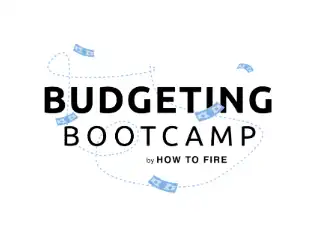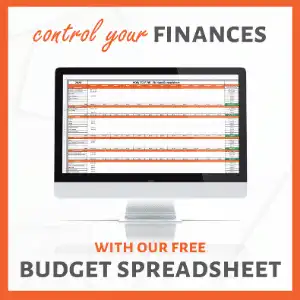A budget is a piece of paper or spreadsheet that commonly illustrates the amount of money you earn and spend in a month. However, without budget categories, you won’t know where you spend and how much you need. When you create your budget breakdown, it helps to know where your money goes to create a successful budget and make smart money choices.
Table of Contents
What Are Budget Categories?
You can’t create a successful monthly budget without budget categories or ‘buckets’ of income and expenses. You can get as detailed or generic as you like with your personal budget categories. It just depends on what will make things easier for you.
For example, some people budget for the ‘big’ categories, like housing, transportation, and food. Others get much more detailed, breaking down categories like ‘housing’ into rent or mortgage payments, utilities, taxes, and insurance.
There are many common budget categories you can use. Categories aren’t just all your expenses, though. They are also used to track your income. Today, most people have at least two, if not more, income streams. Categorizing and budgeting those important household budget categories leads to greater financial peace.
Budget Envelope Categories Checklist
Click on the image below to get your budget categories checklist!

A Simple Alternative For Cash Envelope Categories
If you love the cash envelope idea but don’t love carrying cash, Qube has the perfect solution – a digital cash envelope system. Qube takes your budget that looks great on paper or a budget spreadsheet and makes it happen in real life. They provide you with spending limits according to the budget you set in your cash envelope categories.
Here’s how it works, with four different plans or a lifetime membership that you can choose from to best fit your lifestyle:
- Apply for a Qube Money account.
- Deposit money into your account.
- Design your budgeting plan into ‘Qubes.’
- Allocate your funds.
- Make spending decisions based on real-time balances.
By getting started, you’ll have the freedom to begin creating a budget and giving your money purpose. Qube is the first of its kind and gives you a great way to keep track of your monthly expenses.
You can download their app here.
What Should My Budget Expense Categories Be?
Everyone has different budgeting categories, but overall, there are some similarities. For example, everyone lives somewhere (has housing expenses), and everyone has to eat (food budget expenses). Once you have determined what you will receive each paycheck, you’ll use your budget categories list to create a sustainable budget. This is essential for money management.
Here’s a breakdown of the most common expenses. Use this list to create budget categories for your budget.
Check out this article on budget template printables that will help you gain financial control.
Types of Expenses
Housing
Housing expenses are usually the largest expenses in any budget. They include every cost you incur to keep a roof over your head, whether you live in a condo, house, or apartment. Property taxes could also fall into this category. Housing costs include:
- Rent or mortgage payment
- Real estate taxes
- Homeowner’s insurance
- Home Owner’s Association (HOA) Fees
- Home maintenance and repairs
- Home Owner’s Association (HOA) Fees
Transportation
Transportation expenses include any costs you incur to get from Point A to Point B. If you own a car, it’s the costs incurred to own the car. If you take public transportation or rideshare, it’s the cost you pay. Transportation costs include:
- Car or lease payment
- Gas
- Auto repairs
- Regular car maintenance (oil changes, new tires, inspections, etc.)
- Car insurance
- Parking fees and costs
- Rideshare costs/tips
- Public transportation fare
- Registration fees
Food
Food is an essential expense that may vary from month to month. This is one budget category, many people don’t properly budget, though, because they forget about things like groceries, dining out, or coffee shop stops, which can cause overspending. It is also a category that can easily be cut back on. Food expenses should include:
- Grocery store trips
- Dining out
- Food you order in (takeout or drive-thru)
- Coffee shop stops
- Alcohol
- Work lunches
Utilities
Utilities are any bill you pay to keep your home warm or cool, water running, and power on. This budget category includes internet and cell phone bills but keeps the cable bill for a nonessential expense. Internet and cellphones are necessary for most people to work from home and/or the kids to e-learn. Utility expenses include:
- Gas
- Electric
- Water
- Utility
- Cell phones
- Internet
- Trash collection
Medical/Healthcare
Healthcare is essential to your wellbeing. It includes the obvious like doctor and hospital bills but also includes expenses you incur for medication or medical equipment. Medical/healthcare expenses include:
- Medical or health insurance
- Vision or dental insurance
- Doctor visits (out-of-pocket expenses)
- Dental care
- Eye doctor appointments
- Glasses/contacts
- Prescription medications
- Medical devices such as wheelchairs and canes
Insurance
Any insurance you pay that doesn’t fall in one of the above categories included here. Think of any and all insurance policies you pay for, even those you only pay once a year. A few options include:
- Life insurance
- Disability insurance
- Health insurance
- Accidental death insurance
- Renters insurance
- Auto insurance
Taxes
Taxes should include any taxes you didn’t include above (real estate taxes). Whether you work for an employer or are self-employed, you pay state and federal income taxes. You should also include any local taxes or sales tax you typically pay on your tax returns.
Education/Childcare
If you have children, you likely pay for education, even at public school and/or childcare. Categorize expenses, such as:
- Tuition or private school costs
- Books
- Daycare
- Before/after school care
- Tutoring
- Camps
- School supplies
Debt payments
Any high-interest debt you carry should be included in your budget. Whether you have personal loans, student loan debt, or high-interest credit card debt, include it in this category.
Retirement/Savings Account
A portion of your discretionary income should always go toward savings. Whether you’re saving money for an emergency fund or retirement, you should always have liquid savings available. An emergency fund should have 3 to 6 months of expenses in it at a minimum. Your retirement fund should be ongoing and if you have any other financial goals, include it in your budget too.
Personal Budgeting Categories
Personal budgeting categories include all categories that aren’t ‘essential,’ but you still need to spend in them to manage everyday life.
Learn how to track your money in less than 20 minutes with our PROVEN values-based budgeting system!
You deserve less stress and more fun when it comes to managing your money.
Household Items/Supplies
Household supplies, including any item you regularly use to keep your family safe and healthy, including:
- Cleaning supplies
- Paper goods (paper towels, toilet paper, Kleenex, etc.)
- Home decor
- Small appliances
Personal Care
Personal care is one of the largest personal budgeting categories and could be a cross between essentials and luxuries. For example, you need your haircut, but you may not need the coloring or manicure. Personal care should include:
- All hair salon services
- Nail services
- Makeup
- Beauty items
- Massages
- Spa treatments
Clothing
Clothing is a necessity, but there comes the point that it becomes a luxury too. Make sure to include all the following:
- Clothing or all family members
- Shoes for all family members
- Accessories
- Backpacks/purses
- Work clothing
Entertainment/Subscriptions
Everyone needs to have some fun! Include any ‘activity’ or non-essential subscription in this category, including:
- Gym memberships
- Cable TV
- Move outings
- Event tickets
- Bars
- Hobbies/crafts
- Netflix or other streaming services subscriptions
- Clothing subscriptions
- Magazine subscriptions
- Any other monthly subscriptions
Travel
Travel could be work-related (essential) or fun vacations. Travel should include:
- Airfare
- Bagging charges
- Car rental
- Tickets
- Hotel stays
- Souvenirs
- Bus tickets
- Train tickets
Pets
Our furry friends need a spot in our family budget, too, as they have dietary and medical needs, including:
- Pet food
- Pet medication
- Vet visits
- Annual vaccinations
- Pet accessories
- Pet toys
- Pet bedding
Gifts/Charitable Giving
Try to think of all gifts you give throughout the year and any donations year-round, not just during the holidays. This category should include:
- Birthday gifts
- Holiday gifts
- Hostess gifts
- Wedding gifts
- Baby gifts
- Charitable donations (monetary)
Miscellaneous
Any fees you didn’t categorize above, make sure you throw in a miscellaneous category. Some common miscellaneous expenses include:
- Bank fees
- Excessive personal spending
- Shopping expenses beyond the necessities
- Postage
- Stationary fees
- Pictures
- License renewal
- Babysitting
We've crafted our own unique budgeting resources for you. Grab a free copy of our worksheet and budgeting spreadsheet.
How to Avoid Under-Budgeting or Over Budgeting
Qube makes it easy to stay within your spending plan and allocate your monthly income appropriately. Because it’s simple to keep swiping your card and not pay attention to how much money you have left, Qube limits your transactions to the amount you budgeted for each category. If you don’t have the money in the selected category, Qube will decline the transaction.
If you decide to go with a traditional approach, like a spreadsheet, piece of paper, or another app, you may be able to go over your budget without realizing it. Then, you’ll have to adjust it to reflect your actual spending. It’s important to keep tabs on your budget so you always know how much money is coming in and going out at all times.
Related Article: 19 Free Budget Printables to Manage Money Like a Pro
Budgeting Tips and Tricks
- Your budget categories should be fluid. Life changes often, so be sure your monthly budget is flexible enough to accommodate your needs.
- Track your expenses from previous months, including everything, such as unexpected expenses, variable expenses, insurance premiums, and any others that make sense so you don’t miss anything.
- Make sure you can adjust your monthly budget as needed. For example, if you change jobs, your income changes, or you add expenses, adjust your budget categories accordingly.
- Learn from your mistakes. Even if your first monthly budget doesn’t work, determine what went wrong, and try again. As you get better at it, you’ll have extra money to plan ahead and cover unexpected costs.
Do You Have Money Saved? Check Out This Surprising Statistic:
25% of adults today would use a credit card to pay for an emergency because they don’t have an emergency fund. So instead of withdrawing from their savings, they would accrue interest and have credit card debt, making debt payments over time.
In fact, only 43% of Americans have enough money saved to cover unexpected expenses, so you must make it a part of your budgeting process.
Budget Categories FAQs
Which payment type is best if you are trying to stick to a budget?
A debit card is the best option when sticking to a budget. You can see your transactions in real-time and can categorize your spending habits. When you have cash, it’s hard to tell where you spent money and in which category. The lines get blurred, and budgets don’t get followed. That is why it is also best to use a budget calculator or other budgeting tools and other budgeting software like Quicken to ensure you stay on top of your budget.
What percentage of your income should go to what?
Try keeping your budget to 50% essentials and fixed expenses, 30% non-essential or ‘fun’ expenses, and 20% debt payoff and savings.
What Is a Three-Category Budget?
If you want to keep your budget simple and have a three-category budget, it should include needs, wants, and savings. If you don’t have debt, this could be a reasonable budget. Even with debt, you can include the payments in the need budget categories list to ensure you pay everything necessary.
What are the Most Popular Budgeting Methods?
There are many budgeting methods, but the most popular today are the 50/30/20 budget, zero-based budget, and the 30 30 30 10 budget. However, that budgeting method is extreme and only for those serious about aggressively saving for the future.
Budgeting Categories Are Important For Your Budget
If you’re in the process of learning how to make a budget, it’s important to begin creating budgeting categories. This is all part of managing personal finances. You’ll know exactly where your money goes and how you spend it. You’ll see where you overspend, and with the help of Qube, not be able to overspend because you’ll have limits for each category. It’s one of the best ways to transform your spending behaviors, save money, and ensure you stick to a budget long-term.
Samantha Hawrylack is a personal finance expert and full-time entrepreneur with a passion for writing and SEO. She holds a Bachelor’s in Finance and Master’s in Business Administration and previously worked for Vanguard, where she held Series 7 and 63 licenses. Her work has been featured in publications like Grow, MSN, CNBC, Ladders, Rocket Mortgage, Quicken Loans, Clever Girl Finance, Credit Donkey, Crediful, Investing Answers, Well Kept Wallet, AllCards, Mama and Money, and Concreit, among others. She writes in personal finance, real estate, credit, entrepreneurship, credit card, student loan, mortgage, personal loan, insurance, debt management, business, productivity, and career niches.





Ken Ford
Saturday 2nd of April 2022
Where does capital losses fall under